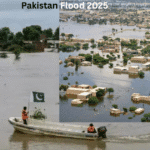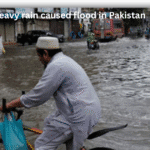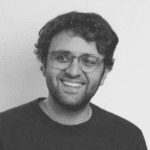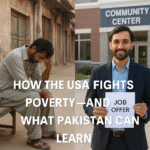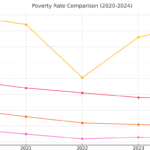I remember hearing about Kalshi in the news a while ago. A new company built by some MIT graduates. At that time, I didn’t pay much attention—just another U.S. startup doing something fancy with finance.
But today, when I saw the headline that Kalshi is now valued at $2 billion, something inside me paused.
I thought,…. how? How did a young guy create such a big thing in such a short time? And more importantly…
Why don’t we have startups like this in Pakistan?
Let me share with you what I found—and what it made me feel.
📌 Who is Tarek Mansour?
According to Google, Tarek Mansour is a young entrepreneur, born in California, raised in Lebanon, and educated in the U.S. at MIT. He doesn’t come from a billionaire background. Just a bright guy with a smart idea.
Tarek saw a gap in the financial system: people didn’t have tools to hedge against real-life risks. For example, farmers could hedge crop prices, but what about people worried about inflation or government shutdowns?
So he and his co-founder, Luana Lopes Lara, created Kalshi—a prediction market regulated by the U.S. government (yes, fully legal). The idea took off.
He teamed up with Luana Lopes Lara, and together, they built Kalshi, a trading platform where people can invest money based on real-world events, like “Will inflation go above 4% this year?” or “Will the Fed raise interest rates next month?”
In simple words, it’s like the stock market—but for predictions like Yes OR No.
I try to give you some examples from the real world
💡 Kalshi’s Real-World Impact: Not Just for Wall Street
This isn’t just gambling. Kalshi helps real people and businesses in ways that make a real difference.
🟢 For Small Businesses
Example: A Florida orange farmer is worried a sudden frost might destroy his crops.
Instead of just hoping for the best, he goes on Kalshi and buys a “Yes” contract for:
“Will temperatures fall below freezing in February?”
If the frost actually happens, and his crops get ruined, Kalshi pays him, helping cover the loss.
👉 Impact: Protects small businesses. Helps farmers sleep better. Saves jobs.
📉 For Financial Markets
Kalshi has a market like:
“Will the Fed cut interest rates this quarter?”
Traders, analysts, and even policymakers use Kalshi prices to see what the public really thinks, in real time. Sometimes, it’s even faster than official forecasts.
👉 Impact: Makes markets smarter and more efficient.
🌬️ For Climate & Clean Energy Companies
Imagine a wind energy company in Texas. If they face a low-wind month, they lose a lot of revenue. On Kalshi, they can hedge their risk by trading on:
“Will average wind speed drop below X in March?”
If the wind doesn’t blow, their Kalshi contract pays out, helping them stay afloat.
👉 Impact: Helps clean energy grow with less financial risk.
🏛️ For Policy & Advocacy
Kalshi even runs markets on things like:
“Will Congress pass this bill?”
“Will there be a government shutdown?”
NGOs, businesses, and even think tanks use these signals to plan their campaigns. It cuts through political drama and shows what people really believe will happen.
👉 Impact: Better decision-making. Less guesswork.
Now imagine if Pakistan had something like this.
“Will the budget pass before June?”
“Will fuel prices rise this month?”
“Will elections happen on time?”
In Pakistan, people are often left in the dark, relying on rumors or broken promises. With a system like Kalshi, even NGOs and local businesses could prepare better, build trust, and respond faster.
👉 But the reality? Our system doesn’t allow such innovation. Not because it’s impossible, but because no one’s willing to make it possible.
🌍 A Good Idea Needs a Good System
Now, let’s be honest. We have brilliant young people in Pakistan with amazing ideas too.
But what we don’t have… is a system that supports them.
In the U.S., Tarek found:
-
A clear legal path
-
Investors who bet on ideas
-
Regulators who might challenge you—but won’t block you
-
A culture that says, “Try it. If you fail, try again.”
That’s how you build billion-dollar companies that help people.
What If Tarek Tried This in Pakistan?
Let’s imagine the same Tarek, but this time living in Karachi.
He wants to build an event-trading platform.
Here’s what might happen:
-
SECP takes forever to even understand what he’s doing.
-
He’s told, “This is too risky—hum approve nahi kar saktay.”
-
Someone hints, “Agar kaam karwana hai to chai pani samjho…”
-
His idea dies under red tape, delays, and disbelief.
And the worst part? No one even knows what they lost.
🧳 Why Do Our Best Minds Leave?
We always cry about brain drain. But the truth is, we push our best people away.
They don’t want luxury. They just want a system that:
-
Doesn’t block them
-
Doesn’t mock them
-
Doesn’t treat them like criminals for dreaming big
They go to countries like the U.S. not because they love it more, but because those countries love ideas more.
What Can We Learn as a Pakistani?
Tarek’s story shows what’s possible when talent and trust come together.
It makes me proud that a young man with roots in the Middle East can change global finance.
But it also makes me sad, because I know we have many Tareks in Pakistan. The only thing missing is a system that believes in them.
Until we fix that, we’ll just keep watching others win… while wondering “Yeh sab hum kyun nahi kar saktay?”
⚠️ Disclaimer:
This article is not financial advice. The purpose of this post is to highlight how, in countries like the United States, even bold or risky ideas can grow when the system is strong and supportive. In contrast, in Pakistan, broken institutions often make it nearly impossible for startups to survive, not because of a lack of talent, but because of a lack of support. This article is meant to inspire reflection and reform, not investment decisions.
Written by:
A Pakistani living abroad. Still proud of my roots. slightly disheartened but hopeful Pakistani
🖋️ www.OverseaEyes.com


